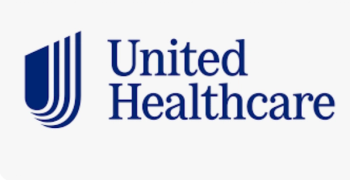
Need to Know: June 2014
Industry updates in business and health management
Business
Several health plans have announced extensions of pre-Affordable Care Act (ACA) plans. Capital BlueCross has been offering small employer group customers with a renewal date of June 1 through Dec. 31, 2014, the option of retaining their current health insurance plan for one more year. Similarly, Priority Health, Michigan’s second largest health insurance provider, will continue to offer 2013 pre-ACA individual and group health plans to subscribers through 2016. Also in Michigan, in the small-group market, Health Alliance Plan (HAP) customers who are currently in a non-ACA compliant plan will have the option to renew their existing coverage, with an annual rate increase, through Oct. 1, 2016. Additionally, Highmark Inc. announced that small employer business clients with renewal dates between July and December 2014 will be able to keep their current health insurance plans for at least another year.
Collab Health, a wholly owned subsidiary of Catholic Health Initiatives (CHI), has acquired Little Rock Ark.’s QualChoice Holdings, the parent company of QCA Health Plan Inc., and QualChoice Life and Health Insurance Co. Inc. QualChoice is the second largest managed care company in the state with 72,500 members. CHI, one of the nation’s largest nonprofit health systems, operates St. Vincent Health System, based in Little Rock.
Aetna, Baptist Health System and HealthTexas Medical Group announced an accountable care collaboration which will provide more quality care to Aetna members through five hospitals, 42 primary care offices and more than 900 physicians in the San Antonio area. In addition, the organizations will jointly introduce Aetna Whole Health, a set of benefits plans that give members access to highly coordinated care, better healthcare outcomes and costs savings for seeking care from providers in the accountable care network.
Health Management
The cost of care for patients with diabetes can be reduced by securing care at a patient-centered medical home (PCMH) practice, according to results from a three-year study by Independence Blue Cross (Independence) and published in the Journal of Public Health Management and Practice. The study involved nearly 4,000 Independence members: half were treated by doctors in medical home practices and half were treated in practices that were not medical homes. Immediate results were seen in reduction of inpatient costs, which indicate that these patients enrolled in PCMH practices were using less costly inpatient services. In subsequent years, the patients in medical homes had 34% fewer emergency department visits, 18% fewer specialist visits, and outpatient costs dropped by 32%.
A survey of patients using anti-TNF drugs to treat chronic inflammatory conditions, such as Crohn’s disease and rheumatoid arthritis, showed that less than 50% had discussed alternative treatment options, such as infusion or injection at home, according to a study published in American Health & Drug Benefits. The survey, developed and administered by HealthCore, an outcomes research group and independent WellPoint subsidiary, was used by the national health insurer to develop a program to reach out to members of its affiliated health plans and inform them of their options. WellPoint data from its affiliated health plans in 2013 shows that the average amount for intravenous infusion of Remicade at the hospital is about $7,300, while intravenous infusion is about $3,800 in the home and $3,600 in the physician’s office.
Newsletter
Get the latest industry news, event updates, and more from Managed healthcare Executive.

























